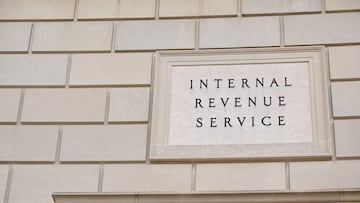American taxpayers who would be affected by the IRS and Treasury plan to collect taxes
The Treasury and IRS are focused on addressing high-end tax abuse from all angles, with the goal of increasing tax fairness and reducing the deficit.


The US Department of the Treasury and the Internal Revenue Service (IRS) have announced a new regulatory initiative to close a major tax loophole exploited by large, complex partnerships.
This initiative is part of ongoing efforts to close loopholes to ensure that wealthy individuals, complex partnerships, and large corporations pay the taxes they owe.
The Treasury estimates that this initiative could raise more than $50 billion in revenue over 10 years by stopping large, complex partnerships from using opaque business structures to inflate tax deductions and avoid taxes.
“Treasury and the IRS are focused on addressing high-end tax abuse from all angles, and the proposed rules released today will increase tax fairness and reduce the deficit,” said Secretary of the Treasury Janet L. Yellen. “Thanks to resources from President Biden’s Inflation Reduction Act, Treasury and the IRS have the tools to stop longstanding abuses.”
Who is being targeted by the new plans?
The new regulations will require taxpayers and their advisers to report if they are participating in these complex partnership basis shifting transactions, providing the IRS with more information to assess the scale of the abuse and direct enforcement resources.
What are complex partnerships in terms of tax?
Complex partnerships refer to intricate business structures that involve multiple layers of partnerships, often with nested partnerships within other partnerships. These structures can be difficult to audit and track due to their complexity, making it challenging for tax authorities to ensure compliance and recoup uncollected taxes.
Related stories
In addition to targeting complex partnerships, the IRS is also taking steps to strengthen enforcement against wealthy individuals who have not paid their tax debts. The IRS has already collected $520 million in back taxes from around 1,000 delinquent millionaires and billionaires.
The agency is also launching audits of the 60 largest corporate taxpayers, with average assets of $24 billion, to ensure they are paying their fair share. These efforts are part of a broader initiative by the Treasury and IRS to transform the agency and ensure it is delivering for American taxpayers.